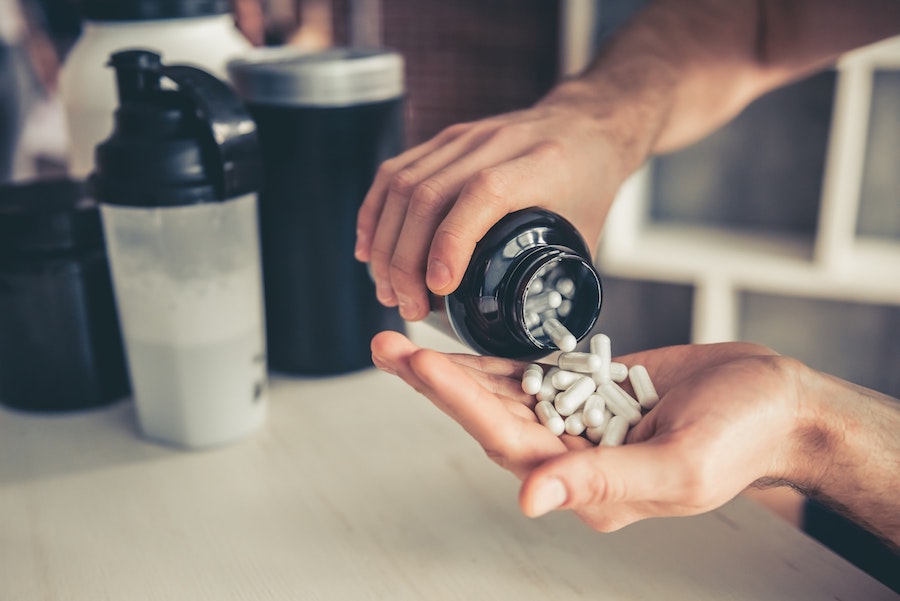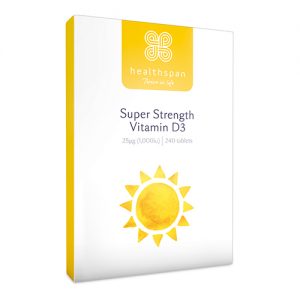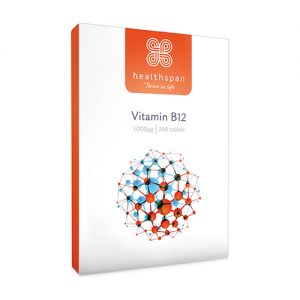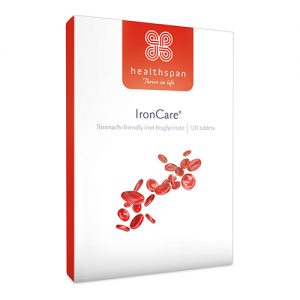These are the 3 supplements most worth considering – according to a doctor
Practically everything comes in pill form these days, but which ones are actually important? Prudence Wade asks a doctor for their key advice.
We’re given so much – often conflicting – advice on how to live healthily, that it can easily get overwhelming. Are carbs actually the devil? Should we be counting macros? And what about supplements?
No doubt you’ve come across a whole range of ‘guidance’ on which vitamins and minerals you need to be topping up on with pills. With so many options out there, it can be hard to know what’s actually worth your time – not to mention your money, as buying tubs upon tubs of supplements doesn’t come cheap.
With this in mind, we asked Dr Faiza Khalid, a GP at MedicSpot.co.uk, for her take on the matter. With all the contradictory information flying around, what supplements should you actually consider taking? (Of course, nutritional needs aren’t always ‘one-size-fits-all’ and if you’re concerned about ongoing symptoms or deficiencies, it’s best to check in with your doctor.)

Here are three supplements Khalid says could be useful to certain people – but bear in mind, these aren’t a replacement for a healthy lifestyle and balanced diet.
1. Vitamin D
“Out of all of the vitamin supplements, vitamin D is the one that most people living in the UK should consider taking,” says Khalid.
So, why is it so essential? “Vitamin D helps with absorbing calcium and phosphate from our diet. These minerals are important for healthy bones, teeth, muscles and all our body systems,” Khalid explains. “While exposure to natural sunlight provides most people in the UK with all the vitamin D they need from late March to early April, this is not the case during the winter months.”
From October to early March, your vitamin D levels will drop because the sunlight doesn’t contain enough UVB radiation for your body to produce the much-needed vitamin. While vitamin D can be found in foods like oily fish, red meat and eggs too, Khalid points out: “It is difficult for people to get enough vitamin D from food alone. Everyone – including pregnant and breastfeeding women – should consider taking a vitamin D supplement during the autumn and winter months.” In fact, Public Health England advises taking a daily 10mcg vitamin D supplement during the autumn and winter months.
Don’t be tempted to ‘boost’ your levels by taking far more than is recommended, however. “Taking more vitamin D than is required for a long period of time might lead to hypercalcaemia, a build-up of calcium in the body which can weaken your bones and damage your heart and kidneys,” Khalid notes.
2. Vitamin B12
Vitamin B12 is found in foods like meat, fish and dairy unlike vitamin D, this one isn’t as widely recommended. Instead, the group Khalid thinks may need to consider taking vitamin B12 supplements are vegans.
“This is because vegans are at a higher risk of developing a deficiency, as they do not eat foods such as meat, fish and dairy products which provide enough vitamin B12 for most people,” she explains. Vitamin B12 is vital for helping make red blood cells, as well as supporting the nervous system.
However, Khalid also notes it can “take a long time to develop a deficiency after changing your diet, as your body stores vitamin B12 for around two to four years”.
3. Iron
According to the British Nutrition Foundation, iron is the most common nutritional deficiency in the world. It’s an important mineral because it makes up part of haemoglobin – the substance found in red blood cells which helps transport oxygen around your body.
There’s no doubt it’s crucial to health – but not everyone should rush into buying supplements. However some people may be more at risk of developing low levels, or iron-deficiency anaemia. “Young women with heavy periods may wish to consider taking an iron supplement because they are at a higher risk of iron-deficiency anaemia,” Khalid advises. “This causes tiredness, shortness of breath, heart palpitations and pale skin. If you believe you may have an iron deficiency, you should see a GP first, who will be able to do a simple blood test to determine if you are anaemic.”
If there’s no chance you could be anaemic, it’s easy to maintain healthy iron levels through your diet. There is a varied range of foods rich in the mineral – anything from red meat, to pumpkin seeds and spinach are among good sources.
And the one you really shouldn’t bother with…

Your first priority should be making sure your diet is well rounded and balanced, before you start thinking about supplements. And remember to check in with your GP if you are concerned.
One you probably shouldn’t waste your time on? According to MedicSpot GP Dr Abby Hyams, that’ll be beta-carotene supplements. “You should be able to get enough beta-carotene from the foods you eat. Beta-carotene is found in yellow and green vegetables and yellow fruit,” she explains.
Disclaimer
All content on Silversurfers.com is provided for general information only, and should not be treated at all as a substitute for the medical advice of your own doctor or any other health care professional. Silversurfers will not be responsible or liable for any diagnosis made by a user based on the content on www.silversurfers.com and we are also not liable for the content of any external websites or links from or to Silversurfers to any other websites. Please always consult your own doctor if you’re in any way concerned about any aspect of your health.
The Press Association
Latest posts by The Press Association (see all)
- Actor Richard Chamberlain dies aged 90 - March 30, 2025
- 5 new books to read this week - March 26, 2025
- 6 things a physio wishes people over 60 would stop doing - March 25, 2025
- NHS reminder to 7.5m people as Covid-19 jab booking system opens - March 25, 2025
- The truth about cholesterol – what you need to know - March 25, 2025
























